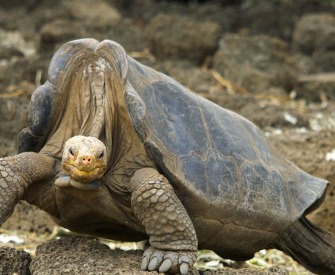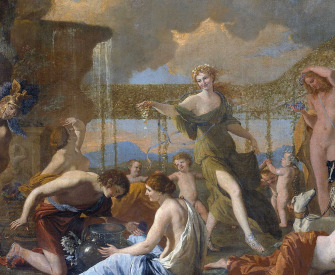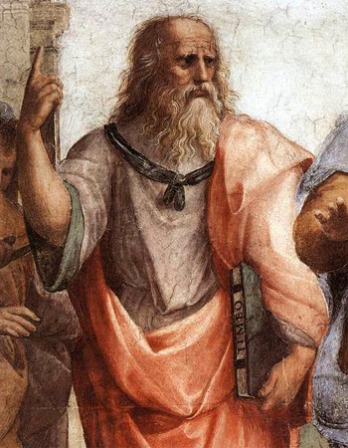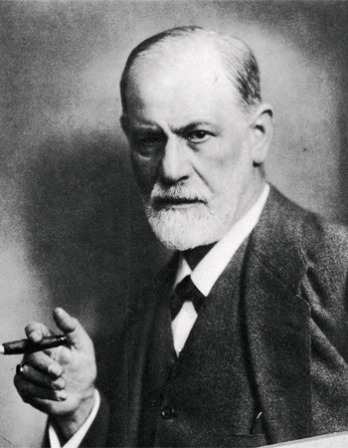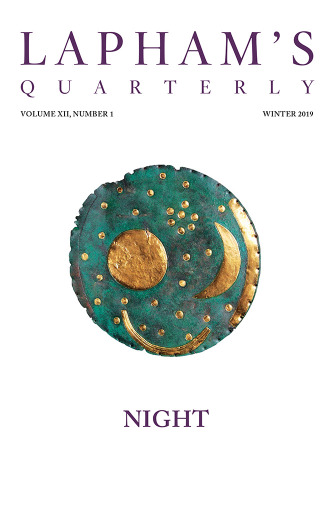It has been my good luck to kill every kind of game properly belonging to the United States, though one beast which I never had a chance to slay, the jaguar, from the torrid South, sometimes comes just across the Rio Grande; nor have I ever hunted the musk ox and polar bear in the boreal wastes where they dwell, surrounded by the frozen desolation of the uttermost North.
I have never sought to make large bags, for a hunter should not be a game butcher. It is always lawful to kill dangerous or noxious animals, like the bear, cougar, and wolf; but other game should only be shot when there is need of the meat, or for the sake of an unusually fine trophy. Killing a reasonable number of bulls, bucks, or rams does no harm whatever to the species; to slay half the males of any kind of game would not stop the natural increase, and they yield the best sport, and are the legitimate objects of the chase. Cows, does, and ewes, on the contrary, should only be killed (unless barren) in case of necessity; during my last five years’ hunting I have killed but five—one by a mischance, and the other four for the table.
From its very nature, the life of the hunter is in most places evanescent, and when it has vanished, there can be no real substitute in old settled countries. Shooting in a private game preserve is but a dismal parody; the manliest and healthiest features of the sport are lost with the change of conditions. We need, in the interest of the community at large, a rigid system of game laws rigidly enforced, and it is not only admissible, but one may almost say necessary, to establish, under the control of the state, great national-forest reserves, which shall also be breeding grounds and nurseries for wild game; but I should much regret to see grow up in this country a system of large private game preserves, kept for the enjoyment of the very rich. One of the chief attractions of the life of the wilderness is its rugged and stalwart democracy; there every man stands for what he actually is, and can show himself to be.
There are in different parts of our country chances to try so many various kinds of hunting, with rifle or with horse and hound, that it is nearly impossible for one man to have experience of them all. There are many hunts I long hoped to take, but never did and never shall; they must be left for men with more time, or for those whose homes are nearer to the hunting grounds. I have never seen a grizzly roped by the riders of the plains, nor a black bear killed with the knife and hounds in the southern canebrakes; though at one time I had for many years a standing invitation to witness this last feat on a plantation in Arkansas. The friend who gave it, an old backwoods planter, at one time lost almost all his hogs by the numerous bears who infested his neighborhood. He took a grimly humorous revenge each fall by doing his winter killing among the bears instead of among the hogs they had slain; for as the cold weather approached he regularly proceeded to lay in a stock of bear bacon, scouring the canebrakes, bringing the quarry to bay with the help of a big pack of hard-fighting mongrels, and then killing it with his broad-bladed bowie.
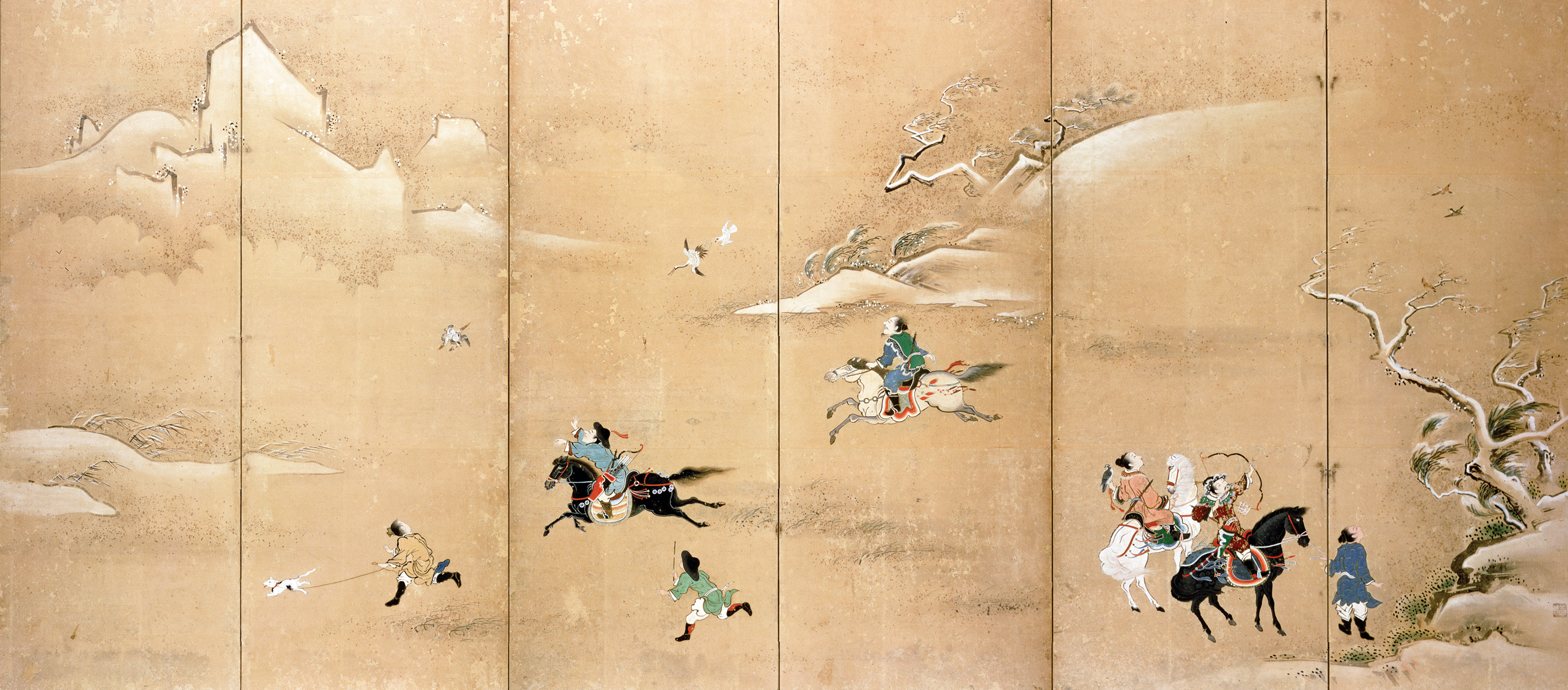
Boar hunt, Japanese folding screen, c. 1800. © Christie’s Images, The Bridgeman Art Library International.
I should like to make a trial at killing peccaries with the spear, whether on foot or on horseback, and with or without dogs. I should like much to repeat the experience of a friend who cruised northward through the Bering Sea, shooting walrus and polar bear, and that of two other friends who traveled with dogsleds to the Barren Grounds, in chase of the caribou, and of that last survivor of the Ice Age, the strange musk ox. Once in a while it must be good sport to shoot alligators by torchlight in the everglades of Florida or the bayous of Louisiana.
Yet the sport yielded by rod and smooth bore is really less closely kin to the strong pleasures so beloved by the hunter who trusts in horse and rifle than are certain other outdoor pastimes, of the rougher and hardier kind. Such a pastime is snowshoeing, whether with webbed rackets in the vast northern forests, or with skis on the bare slopes of the Rockies. Such is mountaineering, especially when joined with bold exploration of the unknown. Most of our mountains are of rounded shape, and though climbing them is often hard work, it is rarely difficult or dangerous, save in bad weather, or after a snowfall. But there are many of which this is not true: the Tetons, for instance, and various glacier-bearing peaks in the Northwest; while the lofty, snow-clad ranges of British Columbia and Alaska offer one of the finest fields in the world for the daring cragsman. Mountaineering is among the manliest of sports, and it is to be hoped that some of our young men with a taste for hard work and adventure among the high hills will attempt the conquest of these great untrodden mountains of their own continent. As with all pioneer work, there would be far more discomfort and danger, far more need to display resolution, hardihood, and wisdom in such an attempt than in any expedition on well known and historic ground like the Swiss Alps, but the victory would be a hundredfold better worth winning.
From The Wilderness Hunter. Plagued by myopia and asthma as a boy, Roosevelt chose to live “the strenuous life,” ranching cattle for two years in 1884 and rounding up enemies of the state with the Rough Riders in Cuba in 1898. As president, he created the Forest Service in 1905, designating more than 190 million acres as national wildlife land. Upon leaving office in 1909, Roosevelt went to Africa for a hunting trip.
Back to Issue


